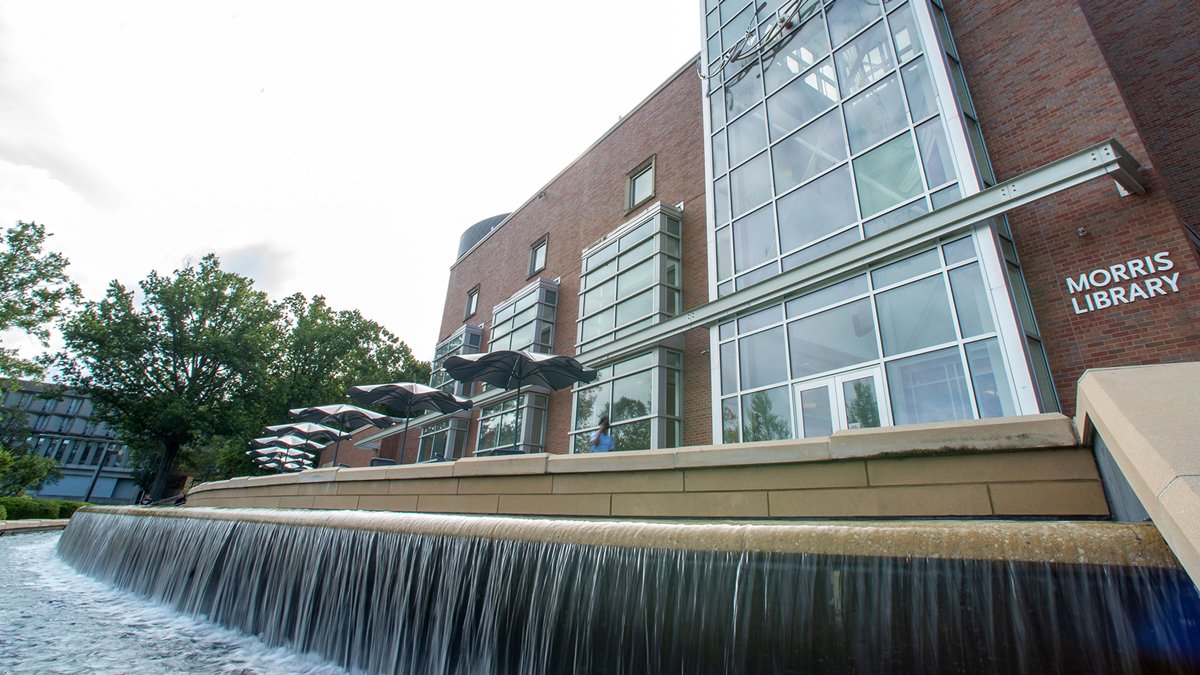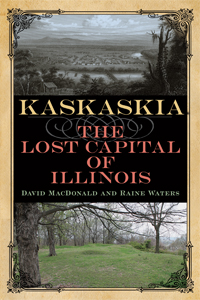
September 23, 2021
Friends of Morris Library to honor Beadles, MacDonald and Waters
CARBONDALE, Ill. — A pair of books that shed light on pieces of the state’s history will be recognized next week as the 2020 and 2021 Friends of Morris Library Delta Award winners at Southern Illinois University Carbondale.
“Stained with Blood and Tears: Lynchings, Murder and Mob Violence in Cairo, Illinois, 1909-1910” by John A. Beadles is the 2021 award recipient. “Kaskaskia: The Lost Capital of Illinois,” by David MacDonald and Raine Waters, the 2020 award winner, will also be honored at this year’s event due to the event’s cancellation last year because of the COVID-19 pandemic.
A presentation and award ceremony will begin at 5 p.m. Thursday, Sept. 30 in the library’s John C. Guyon Auditorium. A reception and book signing will follow in the first floor rotunda. Darrel Dexter, one of the editors of Beadles’ book, will discuss “Stained with Blood and Tears.” Mark Wagner, associate professor of anthropology at SIU, and director of the Center for Archaeological Investigations, will give a presentation on the archeological dig at Fort Kaskaskia and its connection to Kaskaskia.
This event is free and open to the public. SIU is committed to protecting the community, so all those attending must follow current campus and state pandemic safety protocols and wear masks in shared indoor spaces.
SIU University Press published both of the award-winning books. Founded in the mid-1950s and located on the SIU campus, University Press publishes books of scholarly, intellectual, and creative merit. Publications include books celebrating the history and culture of Southern Illinois, the state, and the Midwest region.
The two awards now make 117 Delta Awards given annually since 1976 by the Friends of Morris Library “to individuals who have contributed significantly to the Southern Illinois region, either by their writing, or by other service.”
Stained with Blood and Tears
 Author John A. Beadles, who grew up in Cairo, recounts the story of what he said was called “the ‘equal opportunity’ lynchings” of a Black man and a white man in Cairo in November 1909, when “at least a thousand men and women were transformed into a murderous mob.”
Author John A. Beadles, who grew up in Cairo, recounts the story of what he said was called “the ‘equal opportunity’ lynchings” of a Black man and a white man in Cairo in November 1909, when “at least a thousand men and women were transformed into a murderous mob.”
The 2019 book also details a lesser-known attempted lynching of a suspected purse snatcher by another mob about three months later that was stopped by about a dozen mostly black deputies and a white sheriff, and the killing of a Cairo police officer by a Pulaski County sheriff over an incident that started in a Cairo brothel.
Beadles, a history professor who retired from Kennesaw State University, had heard about the lynchings while growing up and later learned of the shooting death of the Cairo police officer. Beadles was visiting his father, Thomas, who served as Cairo’s mayor from 1963 to 1967, at a retirement home in Cape Girardeau, Missouri, when he decided to begin collecting information and material for the book.
Beadles, who is 80 and lives in Georgia, will be unable to attend the ceremony but Jerri Pasborg and Dexter, who worked with Beadles on research of the book, will receive the award on his behalf. Beadles is also the author of the 1990 book, “A History of Southernmost Illinois.”
The state’s first capital
 MacDonald and Waters take a comprehensive look at Illinois’ first territorial and subsequent state capital and the state’s early history in “Kaskaskia: The Lost Capital of Illinois.”
MacDonald and Waters take a comprehensive look at Illinois’ first territorial and subsequent state capital and the state’s early history in “Kaskaskia: The Lost Capital of Illinois.”
MacDonald, an emeritus professor of history at Illinois State University, said he and Waters became interested in Kaskaskia because of the bicentennial of Illinois’s statehood in 2018 and that “there was no comprehensive history of the town.” The book focuses on the town’s growth, vibrancy, struggles and subsequent demise.
The original village of Kaskaskia began in 1703 when the Kaskaskia Indian tribe, along with French Jesuit missionaries and a number of Indian traders, moved to the location. The location ultimately became one of the largest French villages in Illinois. MacDonald said Kaskaskia became the territorial capital after George Rogers Clark annexed the Illinois country in 1778 to what would become the United States.
After the Illinois legislature moved the state’s capital to Vandalia in 1820, Kaskaskia went into a slow decline, due in part to a terrible flood in 1844 followed by an epidemic that MacDonald said devastated the town. The Mississippi River broke through in 1881 to the Kaskaskia River north of town, ultimately taking over the course of the lower Kaskaskia River and beginning to wash away the town. The last substantial house in the town of Kaskaskia was taken by the Mississippi in 1907, MacDonald said.
“The modern village of Kaskaskia, where some of the antiquities of old Kaskaskia are preserved, was founded in 1893 three miles from the original site of Kaskaskia. The site of old Kaskaskia is now largely the course of the Mississippi River,” he said.
For more information on the program, contact Morris Library at adminoffice@lib.siu.edu or 618-453-2522. Both books will be for sale at the event on the 30th, and can also be purchased online from the Press at www.siupress.com.
